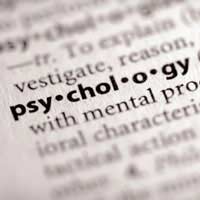What is Disordered Eating?

“Disordered eating” is a term used to describe eating habits or patterns that are irregular. Many different types of disordered eating habits exist, but for the most part these habits do not add up to a diagnosis of an eating disorder. However, like those with diagnosed eating disorders, those with disordered eating patterns usually flourish when professionally guided back towards more typical eating habits.
Types of Disordered Eating Habits
There are many types of disordered eating habits that do not necessarily warrant a professional diagnosis of an eating disorder. Excluding whole food groups (for example, all fats or all carbohydrates), eating only at particular times of the day, eating only specific foods, eating only foods of a specific colour, eating only foods of a specific texture, not eating certain foods together in a sitting and not eating specific foods from the same plate can all be types of disordered eating. Sometimes these habits have formed in childhood, when someone was simply labelled a picky eater, but such patterns can also develop in a quest to lose weight or as coping mechanisms against emotional stress.Disordered Eating and Eating Disorders
Disordered eating patterns are not necessarily eating disorders. In fact, these habits do not generally result in a diagnosis of an eating disorder such as anorexia or bulimia. But they may be diagnoses as eating disorders not otherwise specified, sometimes referred to as EDNOS. This diagnosis is usually based upon the fact that a person’s eating is disordered such that (s)he meets some criteria for a diagnosis of an eating disorder but not all of the required criteria. For example, a girl who fits all of the criteria for anorexia but remains within a normal weight range or continues to have menstrual periods may be diagnosed with an EDNOS. Someone who binge eats and purges, but not at a frequency regular enough to be diagnosed as bulimic, may also be diagnosed with an EDNOS. Like recognised eating disorders, eating disorders not otherwise specified are diagnosed by mental health professionals.Dealing with Disordered Eating
Disordered eating may result from childhood habits, a desire to lose weight or as a means of coping with emotional stress. Depending upon why an individual chooses to engage in disordered eating habits reveals more about how to help these individuals. For example, those who have developed disordered eating in a quest to lose weight can often benefit from the help of a professional nutritionist who can guide them towards more healthy eating choices and methods of shedding unwanted weight. But someone who has turned to disordered eating to cope with their emotions may be helped more by visiting a mental health professional such as a therapist or counsellor who guide him or her towards more healthy means of coping with their stress.The term “disordered eating” literally describes eating patterns that are irregular or disordered. There are many types of disordered eating, and while most do not add up to an eating disorder some may be diagnosed as an eating disorder not otherwise specified (EDNOS). Discovering why an individual has turned to disordered eating habits should help in guiding him or her back towards more healthful eating habits.


Re: Eating by Texture
i can't eat porridge, yogurt and the most types of meat. also i can't drink kefir and juices. i just can't stop gagging while eating/drinking…
Re: Colour Coded Eating
I eat all colors but I can't have more than one color in my mouth at a time, like I can't eat fruity pebbles there's too many colors that I…
Re: Eating by Texture
I need to understand my oroblem. Eating health is hard. I cant really diet due to food allergies and diabetes, but I have a lit of food…
Re: Eating Disorders and the Physical Signs
I’ve been to the gp several times but apparently I don’t look anorexic. I’m 5’3 and weigh around 49 kg. When I eat I…
Re: Dental Damage and Eating Disorders
If you're worried about your weight, eat healthy, research your ideal weight for your age, height and bone structure and…
Re: Eating by Texture
Hi I've avoided soft textured food forever. My father also & he has this full blown, only eats crunchy things. Over the decades it's got better…
Re: Recovering From Anorexia: How Do I Prevent Swollen Stomach?
My daughter is recovering from anorexia (34 hrs old - diagnosed 15 years ago) What do I…
Re: Eating by Texture
I don’t like most veg. The only raw veg I can eat is cucumber. Cooked, I like carrots, cauliflower, baby corn, onion (if it’s well cooked and/or…
Re: Pica Disorder
Potato Boy back. I was doing great for a while but then shelby left me for my dad. I was doing so good. My best friends had an intervention for me and…
Re: Why Does Eating Make Me Feel Sick?
I'm a 22 year old female who has been suffering with anorexia for four years. My fiance and I recently broke up, and I had…